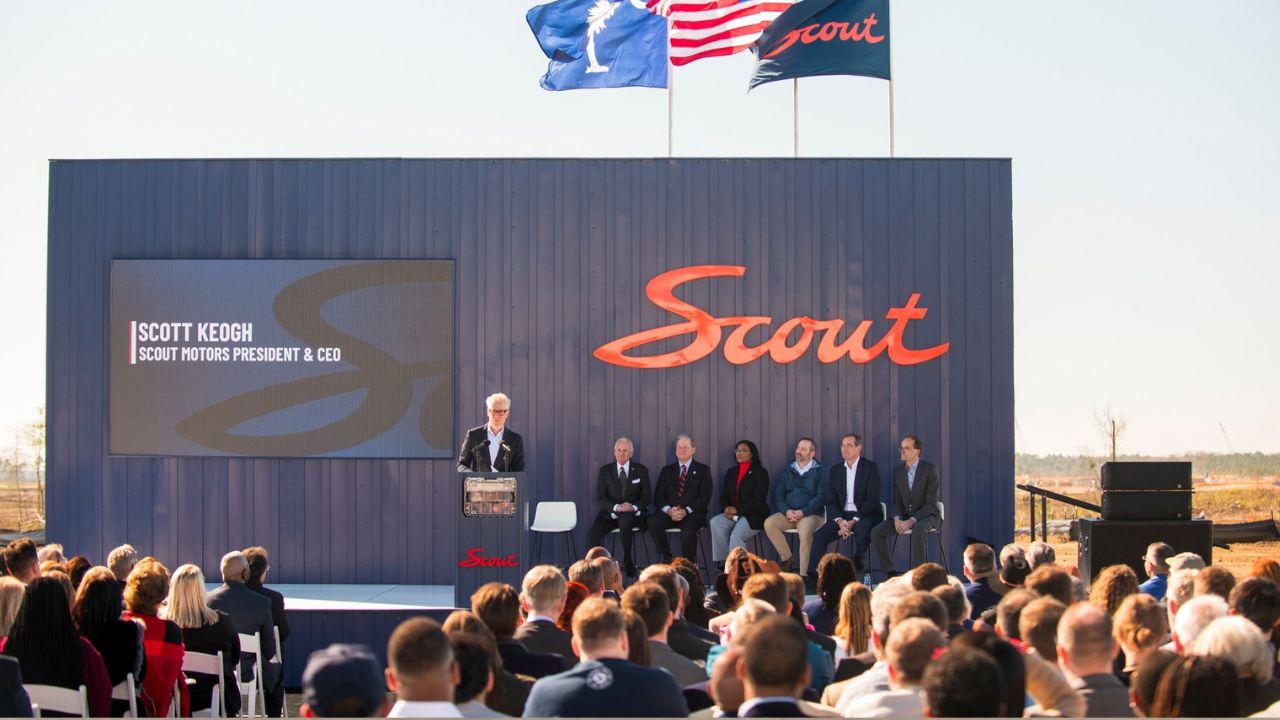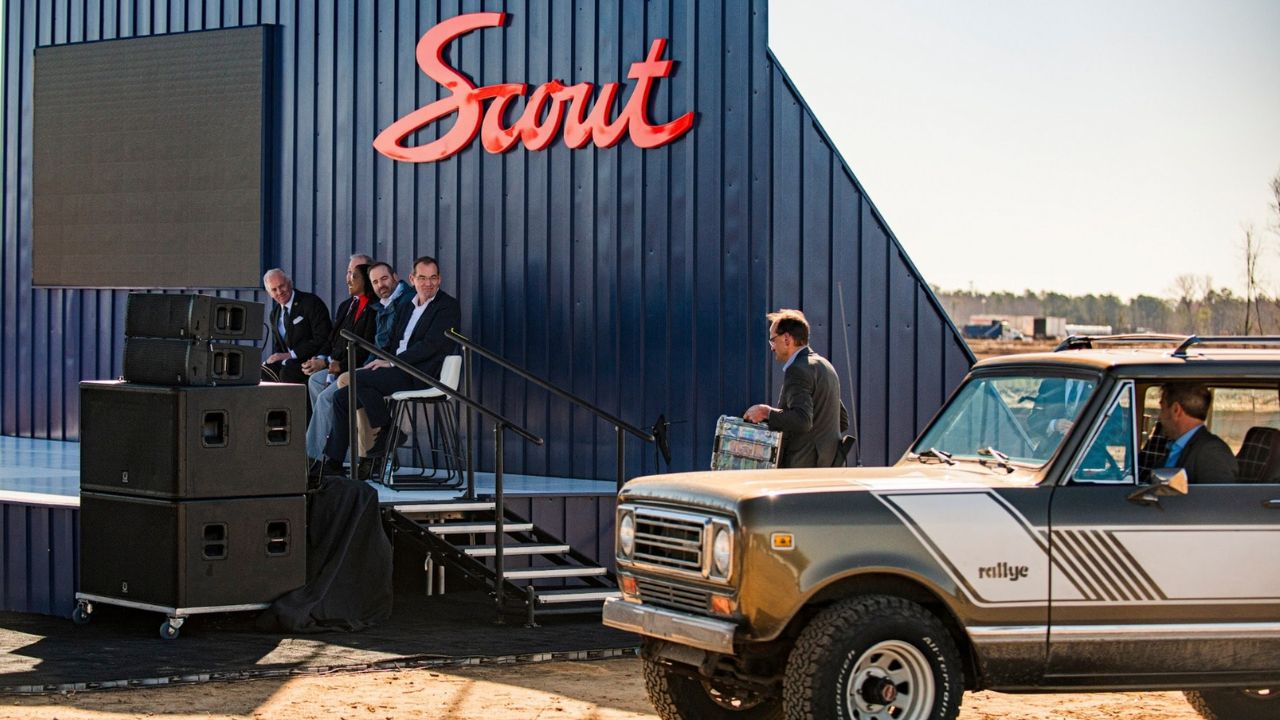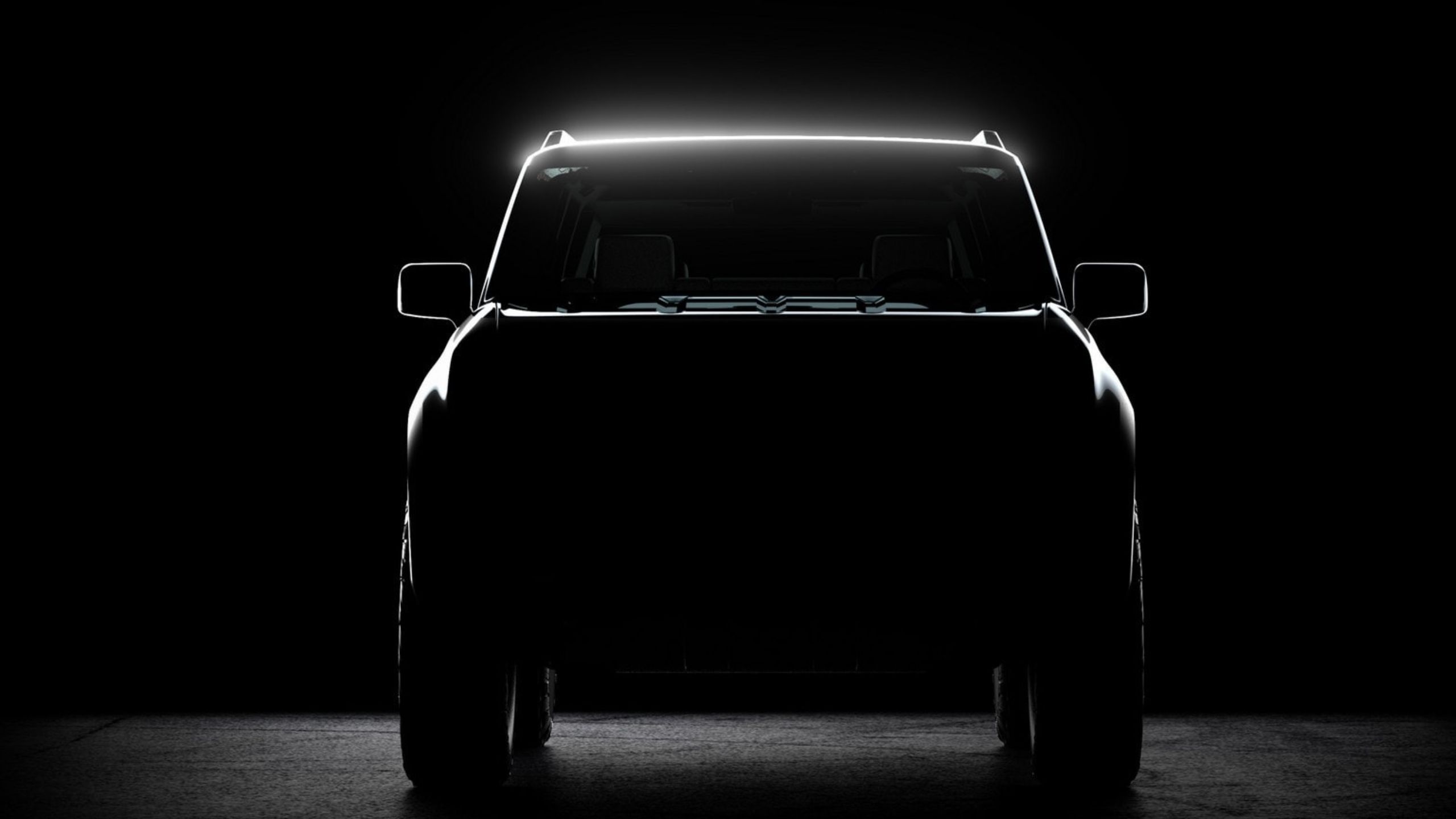Scout Motors embarked on a new chapter in its illustrious journey with the groundbreaking ceremony for its South Carolina factory. As part of the Volkswagen Group’s portfolio, the all-electric brand aims to commence production of its first Scout EVs in 2026 following the unveiling of the prototype later this year.
CEO Scott Keogh envisions these vehicles as robust off-roaders with a tactile, mechanical feel featuring “chunky buttons.”
Two years prior, Volkswagen confirmed speculations regarding the revival of the Scout brand in the US. With the acquisition of Navistar International in 2020, Volkswagen acquired the rights to utilize the esteemed name. From the outset, Volkswagen emphasized the establishment of a new entity with a startup approach, largely independent from Volkswagen’s established practices, which had struggled to resonate with the American market.

Initially, plans centered on establishing a dedicated manufacturing facility in the US to produce all-electric SUVs and trucks distinct from existing Volkswagen models.
However, financial challenges prompted Volkswagen’s leadership to reconsider, contemplating manufacturing Scout EVs through contracts with either Magna or Foxconn.
Ultimately, Volkswagen opted to adhere to the original strategy, culminating in Scout Motors appointing former Volkswagen of America executive Scott Keogh as CEO and announcing plans for the South Carolina factory.
As time progressed, it became evident that Scout Motors stood a better chance at capturing a segment of the US market compared to Volkswagen.
Operating as a startup unencumbered by legacy issues, Scout Motors possessed a rich heritage to draw upon, having pioneered SUVs in the 1960s. The pivotal question remained whether Volkswagen would permit the fledgling company the autonomy to chart its course without undue interference.
The expeditious progress thus far suggests that Scout Motors enjoys sufficient latitude to operate akin to a genuine startup. Just a year ago, the company announced its inaugural production facility in South Carolina after securing substantial state incentives.
The facility’s projected capacity of 250,000 units annually signifies significant strides, with production slated to commence in 2026. Scout Motors wasted no time, recently breaking ground on the new Blythewood, South Carolina factory.
The groundbreaking ceremony was marked by a distinctive touch reminiscent of a ritual. Scout orchestrated a cross-country rally featuring classic Scout off-roaders to transport a brick from the original Scout plant in Fort Wayne, Indiana, symbolizing the new factory’s foundation stone—a nostalgic homage to Scout’s illustrious past.
However, Keogh affirmed the company’s commitment to innovation, stating, “We didn’t want to say to America, ‘It’s the ’70s again,'” emphasizing a contemporary approach for the 21st century.
The forthcoming model, set to debut later this year, will be a rugged all-electric SUV, followed by a pickup truck based on the same platform six months later. Keogh outlined a design ethos eschewing aerodynamics in favor of a rugged truck aesthetic with pronounced angles and corners.
Moreover, Scout trucks will boast “real door handles,” departing from the prevalent trend of recessed self-presenting handles found in other EVs. Keogh emphasized the retention of iconic features, such as the fold-down windshield from the original Scout models.

In contrast to the prevailing trend of digitized controls, Scout electric trucks will prioritize tactile interfaces, embracing “chunky buttons” and a mechanical ethos.
Keogh referenced the Ford Bronco, Land Rover Defender, and Jeep Wrangler as benchmarks, with design sketches hinting at inspiration drawn from Rivian R1T and R1S models. With engineering progress aligning closely with design developments, the envisioned production launch in 2026 appears feasible.
However, numerous challenges lie ahead for Scout Motors, including the establishment of a robust battery supply chain. Keogh revealed that the batteries utilized in US-made Volkswagen ID.4 EVs would not be compatible with Scout vehicles.
Instead, Volkswagen Group plans to leverage its in-house battery subsidiary, PowerCo, which is concurrently constructing a North American factory in Ontario.

